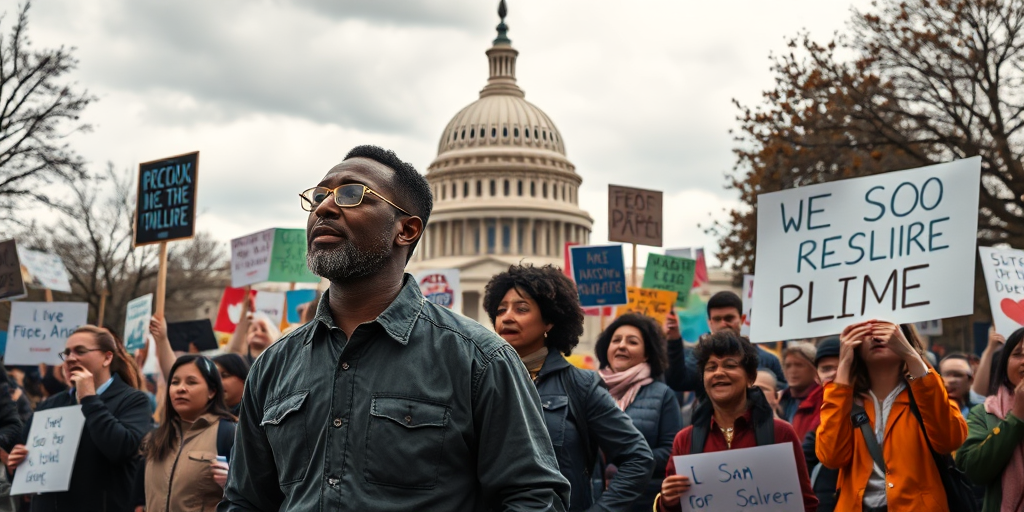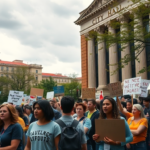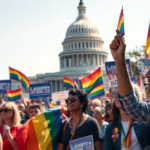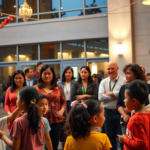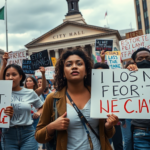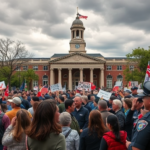Gov’t Demands Roll Back of Protections for LGBTQ+ Foster Youth Raises Concerns
A controversial demand from the government to roll back protections for LGBTQ+ foster youth has drawn significant attention and sparked a heated debate across the nation. Woke News investigates how this development impacts local communities, particularly focusing on the potential effects and reactions from various stakeholders.
The Proposed Changes
The government’s proposal seeks to amend existing regulations that safeguard the rights and well-being of LGBTQ+ children within the foster care system. These protections are crucial for preventing discrimination and ensuring that all foster youth have access to safe and supportive environments. By proposing a rollback, the government argues that the adjustment would allow foster care agencies more flexibility in their operations.
However, critics argue that revoking these protections could lead to increased vulnerability for LGBTQ+ foster youth, who already face higher risks of rejection, mental health issues, and homelessness. Advocacy groups fear that this move could have detrimental consequences, not only for affected children but also for communities striving to create inclusive and supportive environments.
Local Impact: Concerns in Community Discourse
In the wake of the proposed changes, local residents are voicing concerns about the impact on the community. The Rainbow Family Center in Springfield, a local organization dedicated to supporting LGBTQ+ youth, has been at the forefront of advocating against the rollback. “Removing these protections disregards the unique challenges faced by LGBTQ+ foster youth,” says Jamie Tran, the center’s director. “It’s a step back in our efforts to ensure every child has the opportunity to thrive in a supportive environment.”
The proposal has incited discussions in various Springfield neighborhoods, where residents express fears about the potential fallout. “We’re concerned this could lead to more kids slipping through the cracks,” said Maria Diaz, a local parent involved with community outreach. “Everyone deserves a loving, accepting home, regardless of their gender or sexual identity.”
Context: Understanding the Larger Picture
The issue of LGBTQ+ protections in the foster system is not new, and the proposed rollback is part of a series of nationwide policy shifts that have affected marginalized groups. Historically, LGBTQ+ youth have faced systemic challenges within the foster care system, from discriminatory placement practices to lack of access to affirming services. The original protections were implemented to address these issues and promote equality.
Jessica Collins, a family law professor at State University, explains, “These protections were put in place after considerable research showed the heightened risks LGBTQ+ youth face. Removing them could erode years of progress and harm some of the most vulnerable members of our community.”
Future Implications
If adopted, the rollback could have long-term ramifications not only for the foster care system but also for the broader fight for LGBTQ+ rights. The decision might embolden similar actions in other areas of public policy, potentially affecting health care, education, and employment protections for LGBTQ+ individuals.
Community leaders and advocates call for organized responses to counteract these potential outcomes. Enhanced advocacy efforts and legal challenges are anticipated as organizations gear up to protect the rights of LGBTQ+ youth.
Balancing Perspectives
While the proposal has garnered significant opposition, some stakeholders argue for increased autonomy for foster agencies. They contend that flexibility would allow agencies to prioritize placements based on individual needs rather than federal mandates. However, this perspective is not without criticism, as opponents question whether such autonomy might enable discriminatory practices.
Engagement in civil discourse is encouraged, with town halls and forums planned to discuss the implications of the rollback. Residents are urged to stay informed and advocate measures that align with their values and the needs of foster youth.
Resources for Affected Communities
For residents seeking to make their voices heard, several resources are available. Organizations such as the Rainbow Family Center offer support and guidance for those wanting to engage in advocacy or learn more about the proposal’s potential impact. Additionally, a coalition of local leaders has initiated a petition, urging the government to reconsider the rollback and maintain existing protections.
As this issue continues to unfold, it remains critical for community members to remain active and informed, emphasizing that the interests of foster youth must be prioritized in policy decisions. The story highlights a pivotal moment for local impact, one that demands collective attention and action to safeguard the progress made in fostering inclusive and supportive environments for all children.

